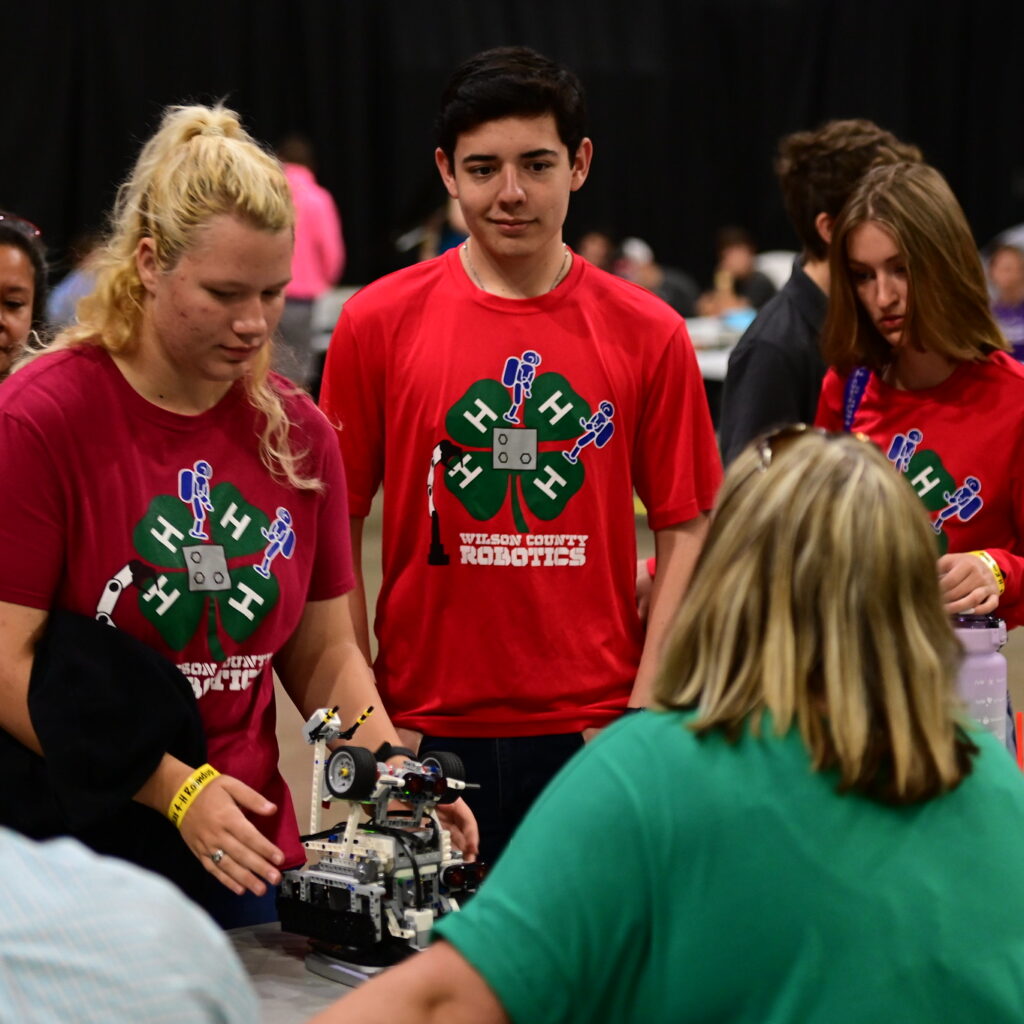
Overview
Contact
You will learn how to design, build, and program robots in an exciting and hands-on project. In this project, youth will:
DEVELOP an understanding of basic science concepts related to robotics.
APPLY the processes of scientific inquiry and engineering design.
BUILD skills in science, engineering, and technology.
USE the tools of technology to enhance learning.
EXPLORE related careers in these fields.
APPLY the skills and knowledge to new challenges.
Project clubs, groups, or teams meet at the local level to learn how to design, build, and program robots. Contact your local County AgriLife Extension office to see if there is a club or group that meets near you. Resources related to robotics platforms (brands), curriculum, build plans, contests and the like can be found in the Robotics Resource Links.
The primary robotics platform for the project (from a 4-H training and competition standpoint) is Lego® Mindstorms®; however, individuals or groups can independently pursue other platforms. Contests include, but are not limited to, the AgRobotics contests held at major stock shows throughout the state and the Robotics Challenge tournament held in the summer at Texas 4-H Roundup. Clubs/teams are also welcome to compete in non 4-H sponsored competitions such as those hosted by FIRST, BEST, and VEX as examples.
Robotics and STEM camp opportunities are available each summer at the Texas 4-H Center. Check their website for dates and details.
Statewide leadership opportunities are available in the robotics project through the STEM Ambassador program.
More choices in 4-H STEM
- Course
Children identify a problem, use stuff to make stuff that does stuff to solve the problem. Learn about research related to engineering design with preschoolers and ideas/activities to encourage and support children in becoming junior engineers. Planning, building, and testing out are the engineering skills of the future.
- Course
Technology is everywhere! How can we prepare preschool-age children for a future that hasn’t been invented yet? Explore research and trends in technology to make the teaching and learning process more engaging. Discover strategies to help children learn science, engineering, and mathematics using more than just computers.
- Course
Developmentally appropriate preschool STEM (science, technology, engineering and math) experiences give young children opportunities to develop divergent thinking, problem solving, and cause and effect. Experiences have great potential to affect brain development during the crucial early childhood window of opportunity.
- Course
Preschool children are capable of understanding concepts of living and non-living things. Explore ways to support children’s observation skills related to the life sciences. Delve into inquiry-based learning activities to encourage critical thinking. Use STEM concepts to test theories on living things and non-living things.
- Course
Using inquiry-based learning, engage preschoolers in developmentally appropriate critical thinking about earth and objects in the sky, what happens during changes in the earth and sky and how children demonstrate care for the environment. Learn to guide children’s scientific thinking about light, shadows, sun and rainbows.
- Course
Experience a variety of counting activities and developmentally appropriate approaches for teaching addition and subtraction. Explore principles, objectives, and developmental stages of counting and examine ways to support children’s counting in everyday situations. Number and operations tasks for preschoolers are provided.
